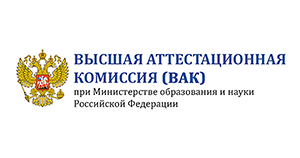|
Перейти
на сайт журнала "Врач" |
Перейти на сайт журнала "Медицинская сестра"
|
Перейти на сайт журнала "Фармация"
|
Перейти на сайт журнала "Молекулярная медицина"
|
Перейти на сайт журнала "Вопросы биологической, медицинской и фармацевтической химии"
|
Журнал включен в российские и международные библиотечные и реферативные базы данных
|
ВАК (Россия)
|
РИНЦ (Россия)
|
Эко-Вектор (Россия)
|
ACTIVITY OF MUSCLE ENZYMES IN THE BLOOD BOBSLEIGH ATHLETES
DOI: https://doi.org/10.29296/25877313-2019-09-07
Issue:
9
Year:
2019
Purpose of the study: to evaluate some biochemical blood parameters of athletes, mainly training strength endurance. Materials and methods. We examined 40 elite bobsleigh athletes of both sexes (28 men and 12 women) in the precompetitive period of sports training. The average age of men was 22.1±2.53 years, women 23.7±3.63 years. In the serum studied biochemical parameters activity of alanine amino (ALT) and aspartate aminotransferase (AST), creatine phosphokinase (CK), creatine phosphokinase MB (CKMB). Results. In both gen-der groups revealed a significant excess of CK activity relative to reference values (on average, 2.9 and 1.9 times, respectively). Creatine kinase activi-ty in men was 44.1% higher than in women (р < 0,05). Also in men, in 47.6% and 23.8% of cases, elevated AST and ALT values were observed, re-spectively, relative to reference intervals. The muscle damage index (CPK/AST) in 95.2% of cases in men and 75% of cases in women was more than 10, which indicates the presence of damage to muscle cells. Conclusions. The data obtained indicate that high values of metabolic biomarkers are characteristic of bobsleighs. This is probably due to mechanical damage to myocytes during intense physical exertion and the development of the cre-atinephosphokinase mechanism of energy supply in athletes of this group.
Keywords:
bobsled
adaptation
biomarker
creatine phosphokinase
alanine aminotransferase
aspartate aminotransferase
muscle damage
References:
- Rybina I.L. Aktivnost' syvorotochnyh fermentov v mo-nitoringe trenirovochnogo protsessa vysokokvalifitsi-rovannyh sportsmenov tsiklicheskih vidov sporta // Vestnik novyh meditsinskih tehnologij. 2016. № 1. S. 135-139 (Rybina I.L. Aktivnost' syvorotochnyh fermentov v monitoringe trenirovochnogo processa vysokokvalificirovannyh sportsmenov ciklicheskih vidov sporta // Vestnik novyh medicinskih tekhnologij. 2016. № 1. S. 135-139).
- Shin K.A., Park K.D., Ahn J., Park Y., Kim Y.J. Comparison of Changes in Biochemical Markers for Skeletal Muscles, Hepatic Metabolism, and Renal Function after Three Types of Long-distance Running: Observational Study // Medicine (Balti-more). 2016; 95(20): 3657.
- Koch A.J., Pereira R., Machado M. The creatine kinase response to resistance exercise // J Musculoskelet Neuronal Interact. 2014; 14(1): 68-77.
- Knechtle B., Nikolaidis P.T. Physiology and Pathophysiology in Ultra-Marathon Running // Front Physiol. 2018; 1(9): 634.
- Chia-Chi Wang, Chu-Chun Fang, Ying-Hsian Lee, Ming-Ta Yang and Kuei-Hui Chan. Effects of 4-Week Creatine Supplementation Combined with Complex Training on Muscle Damage and Sport Performance // Nutrients. 2018; 10(11): 1640.
- Kristoffersen M., Sandbakk Ø., Tønnessen E., Svendsen I., Paulsen G., Ersvær E., Nygård I., Rostad K., Ryningen A., Iversen V.V., Skovereng K., Rønnestad B.R., Gundersen H. Power Production and Biochemical Markers of Metabolic Stress and Muscle Damage Following a Single Bout of Short-Sprint and Heavy Strength Exer-cise in Well-Trained Cyclists // Front Physiol. 2018; 9: 155.
- Kindermann W. Creatine Kinase Levels After Exercise // Dtsch Arztebl Int. 2016; 113(19): 344.
- Damas F., Libardi C.A., Ugrinowitsch C. The development of skeletal muscle hypertrophy through resistance training: the role of muscle damage and muscle protein synthesis // Eur J Appl Physiol. 2018; 118 (3): 485–500.
- Hagstrom A.D., Shorter K.A. Creatine kinase, neuromuscular fa-tigue, and the contact codes of football: A systematic review and meta-analysis of pre- and postmatch differences // Eur J Sport Sci. 2018; 18(9): 1234-1244.
- Koch A.J., Pereira R., Machado M. The creatine kinase response to resistance exercise // J. Musculoskelet Neuronal. Interact. 2014; 14(1): 68–77.
- Rudnev S.G., Soboleva N.P., Sterlikov S.A., Nikolaev D.V. Bioimpedansnoe issledovanie sostava tela naselenija Rossii / M.: RIO TsNIIOIZ, 2014. S. 493 (Rudnev S.G., Soboleva N.P., Sterlikov S.A., Nikolaev D.V. Bioimpedansnoe issledovanie sostava tela naseleniya Rossii / M.: RIO CNIIOIZ, 2014. S. 493).








